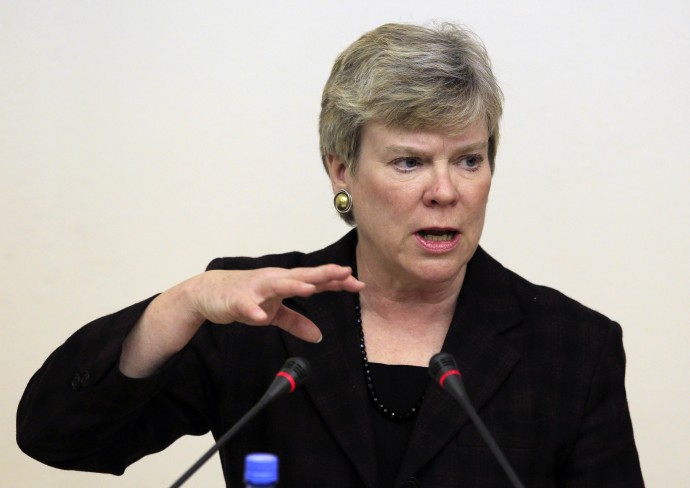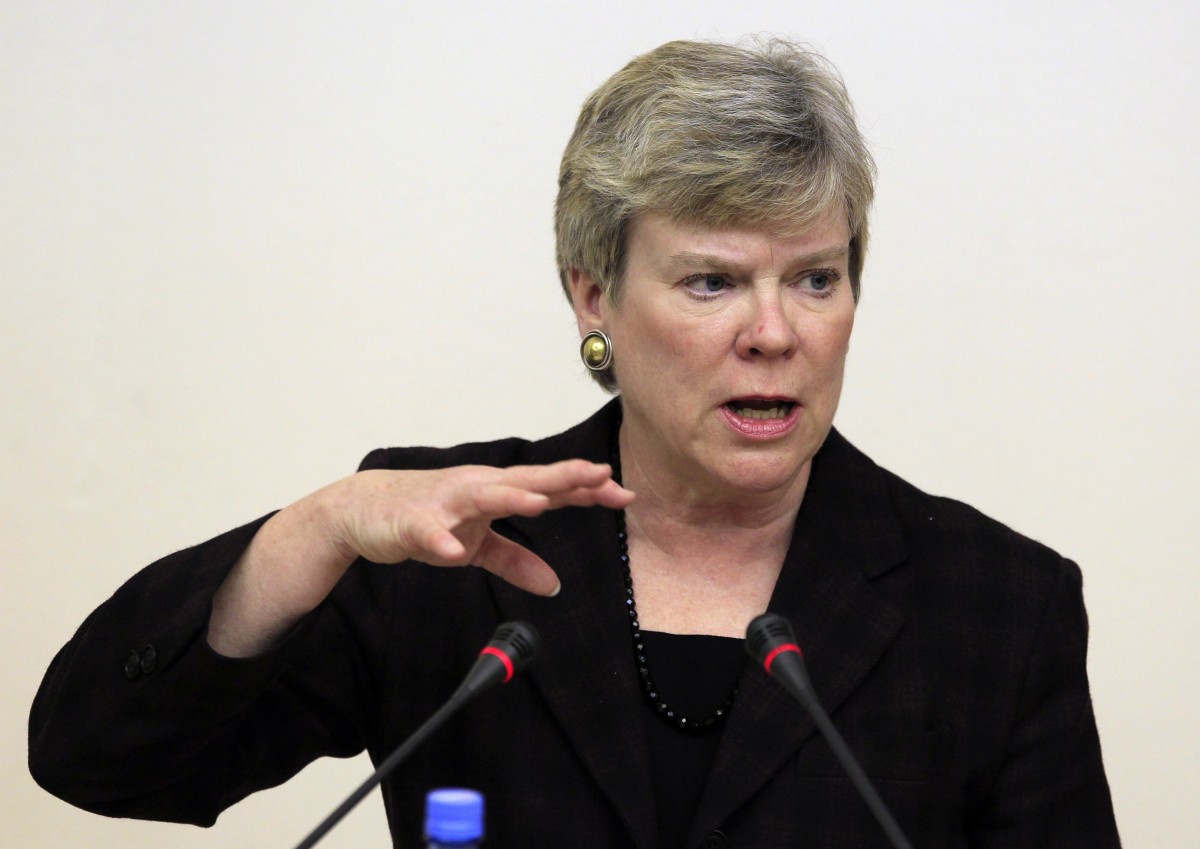
MOSCOW (AP) — Russia and the United States need to do their “homework” on the technicalities of a proposed NATO missile defense shield in order to settle a dispute that has strained relations, the U.S. State Department’s top arms control official said Friday.
The U.S. insists the shield is needed to fend off an Iranian missile threat, but Moscow has rejected those assurances and voiced concern that it will eventually grow powerful enough to challenge Russia’s nuclear deterrent.
Acting Undersecretary of State Rose Gottemoeller said Russian and U.S. technical experts should meet to discuss the shield’s specifics.
She said such talks should prove that Russia and the U.S. can cooperate on the shield and “that the technical capabilities of the system are simply not those that would undermine Russian strategic offensive forces.”
“The more we can be talking about that among technical experts, the greater predictability for the Russian Federation, the greater confidence in what the system can and can’t do,” she said during a visit to Moscow.
Earlier this week, during a nuclear security summit in Seoul, President Barack Obama told Russian President Dmitry Medvedev in remarks unintentionally caught on a microphone that he would have more room to negotiate on the shield if he is re-elected in November.
Obama’s Republican Party rivals pounced on the remarks, accusing him of secretive plotting over American national security.
Seeking to contain the gaffe, Obama said he wants to spend the rest of the year working through technical issues related to the missile defense dispute with the Russians, and that it was not surprising that a deal couldn’t be completed quickly.
Asked about Obama’s remarks to Medvedev, Gottemoeller said the U.S. president “wasn’t talking about any secret deals or anything like that. He was stating the political realities of 2012.”
“In terms of big national initiatives, policy initiatives it’s just the reality of the situation that in an election year it’s more difficult to accomplish that,” she said. “But I see the possibility for homework, as I call it, not only in missile defense cooperation, but in preparing the groundwork for new nuclear reduction negotiations as well.”
She said Obama’s policy of a “reset” in relations with Moscow has led to ongoing improvement in U.S.-Russian ties, featuring such achievements as the New START arms reduction treaty and Russia’s providing a transit corridor for military supplies to the U.S. and other NATO forces in Afghanistan.
“We just have to continue to remember that it’s in the U.S. national interest, as well as we believe in Russian national interest, to engage in a wide-ranging agenda of cooperation,” Gottemoeller said.


